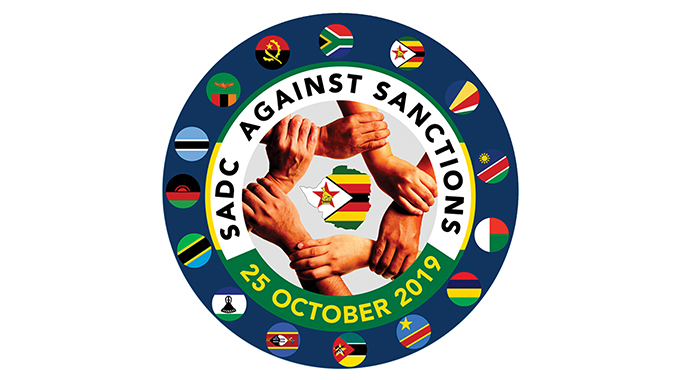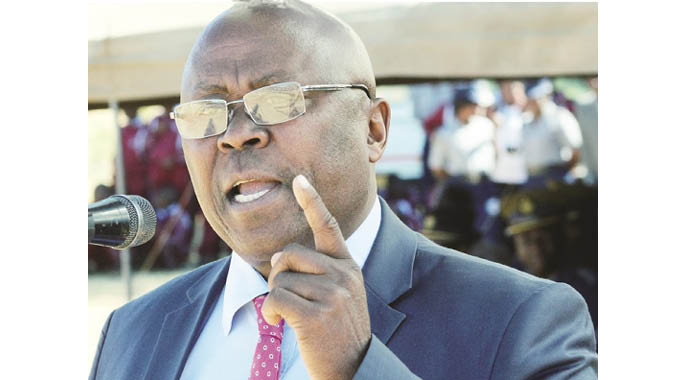COMMENT: Intensify anti-sanctions drive until the West gets the message

Zimbabwe has fought European Union (EU) and US sanctions since their imposition in 2002.
It has been a big campaign that has also seen Sadc, Africa, the Non-Aligned Movement (Nam) and most of the civilised world joining in support of Harare to have the illegal, ruinous measures lifted immediately and unconditionally.
However, no year has been as remarkable as this year in terms of coordination against the embargo and the strength with which the anti-sanctions message was hammered home. The co-ordination was arguably broader, stronger and more immersive this year than previous years. Faced with the strong, well-coordinated denunciation of the sanctions from Zimbabwe, Sadc, Africa and Asia, the US and EU were forced to try to offer defences which typically turned out to be spurious.
We acknowledge that Sadc, the African Union (AU), Nam, China, Russia and dozens of other powers have been supportive of Zimbabwe in the fight against sanctions since they were imposed.
No one will forget the July 2008 double veto by China and Russia against a US resolution to impose UN sanctions on Zimbabwe. Before then, China had not used its veto power to thwart a UN resolution seeking to punish an African country.
No one will forget how Cde Sam Nujoma, then Namibia President confronted Tony Blair, then UK Prime Minister at the Earth Summit in September 2002 over the punitive EU measures against Zimbabwe.
Not many will forget the anti-sanctions petition that garnered two million signatures of Zimbabweans in 2011.
The lobby rose to another level at the Sadc Summit last year when leaders declared October 25 of every year as Sadc Anti-Sanctions Day. They agreed that on that day, every year, member states will organise activities denouncing the measures against Zimbabwe and demanding that they be lifted. Two months later the UN called for the removal of all sanctions against Zimbabwe, saying they were affecting vulnerable people. UN Special Rapporteur on the Right to Food, Ms Hilal Elver, made the call at the end of an official mission to Zimbabwe. The UN reiterated that position in March this year. Ms Elver said the continued imposition of crippling economic sanctions on Zimbabwe and other countries severely undermined the ordinary citizens’ fundamental right to sufficient and adequate food.
Africa spoke with one voice at the 75th session of the United Nations General Assembly held last month. As they warmed up for the second anniversary of the Sadc Anti-Sanctions Day, African leaders demanded the lifting of the restrictive measures on Zimbabwe and Cuba. As the day approached, many demonstrations were staged in many cities abroad against the measures, while the mainstream and social media were awash with messages against the same.
Sadc chairperson, Filipe Nyusi, who is also President of Mozambique asserted on the eve of the day, that Zimbabwe had, under the Second Republic, undertaken reforms that warrant the lifting of the sanctions. On Sunday, AU Commission chairperson Moussa Faki Mahamat reaffirmed the AU’s continued demand for the immediate and unconditional removal of sanctions imposed against Zimbabwe, and voiced the continent’s support for the Sadc Anti-Sanctions Day. Many leaders made similar calls at individual level.
We are confident that Zimbabweans, who are grappling with multiple socio-economic challenges whose root cause are the illegal sanctions, are delighted by such an outpouring of support and hope that the support will not be in vain but lead to the lifting of the unwarranted punishment.
Basking in the well-deserved support, President Mnangagwa, speaking on Sadc Anti-Sanctions Day, said the embargo was a weapon of mass destruction targeted at a peace-loving people of Zimbabwe.
He enunciated the wide-ranging impact that the sanctions have had on the country and demanded they be removed.
At the same time, he indicated that the country will strive, as much as it can with the resources at its disposal, to get the economy back on track.
“The cumulative effect of these illegal sanctions has been devastating in every sector of our economy,” he said.
“Sanctions are a blunt coercive instrument with far reaching implications on the ordinary people, especially women, children, youths, the elderly, people with disabilities and those suffering from chronic illnesses. My country’s citizens have fallen victim to this indiscriminate weapon of mass destruction which is being deceitfully presented to the world as targeted. Furthermore, sanctions have limited Zimbabwe’s capacity to respond to the Covid- 19 pandemic.
However, we are grateful to those nations and organisations who have stood by us and supported us in fighting the pandemic. Sanctions are without doubt a form of aggression against my country and a tool of regime change.”
We found this year’s theme, “Resilience, Progress and Solidarity under an environment of sanctions” apt. It was a message of national, African conviction against the sanctions. It was a message that despite the sanctions, the people of Zimbabwe have been and will continue to be resilient, working in partnership with well-meaning people of the world against the measures for economic recovery and growth. It was not a mournful message, but one that is forward-looking and confident.
An anti-sanctions gala, staged virtually from Bulawayo, was an immersive experience that not only entertained the masses musically, but also communicated the message that the Western sanctions are illegal, destructive, impoverishing and must just go.
This year was a campaign with a difference indeed. Zimbabweans across the various divides, Africans and other progressive forces worldwide are encouraged to intensify the anti-sanctions drive until the US, Britain and the EU get the message and do the needful.












Comments